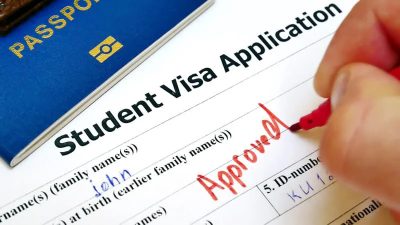
The federal government’s recent announcement that it will reduce the number of visas issued to international student, partly at least as a means of addressing the housing shortage, may aggravate the pilot shortage in Canada, according to British Columbia Aviation Council Executive Director Dave Frank.
“A high number of international students who undertake flight training in Canada choose to stay in Canada and become commercial pilots for the many air operators that are facing a severe pilot shortage,” Frank told Canadian Aviator. Some estimates put the number of international students who decide to pursue careers in Canada as high as 70 percent. “We hosted a Zoom call among most of B.C.’s 37 Flight Training Units (FTU) after the feds announced the visa reduction and they are extremely concerned about the issue,” Frank added.
The Air Transport Association of Canada (ATAC), which represents a large number of FTUs across Canada, estimates that 40 percent of all flight training students in Canada are international. ATAC’s CEO John McKenna is to meet next week with Minister Miller to express the industry’s concerns.
In January federal immigration minister Marc Miller put much of the blame for the excess number of international students on private institutions, accusing some as the “equivalent of puppy mills that are just churning out diplomas.” However, last month CBC News published data it had acquired that showed most of the explosion of international student visas came from publicly funded colleges in Ontario.
Frank pointed out that most publicly funded post-secondary institutions were told they would not face a reduction in visa students, and that the government would focus instead on private educational institutions. “FTUs are not publicly funded,” Frank said.
In addition to the effect of the pilot shortage, Frank also points out the hardship a reduction in student visas for flight training will have on training institutions. “Most FTUs in Canada severely cut back their training activities during the COVID pandemic and are only now getting their finances back on more solid footing,” said Frank. “They have very high capital costs in the form of aircraft and need as many students as possible coming though their doors to help balance the books. They don’t receive any government assistance for that.”
Publicly funded colleges that offer flight training are in fact collaborations with privately owned and operated FTUs that provide the actual flight training, while the colleges provide the academic portion. These FTUs are not part of the publicly funded educational system.
According to B.C.-based Chinook Helicopter CEO Cathy Press, their commercial training program typically runs to around $120,000, whether for rotary or fixed wing pilot training.
